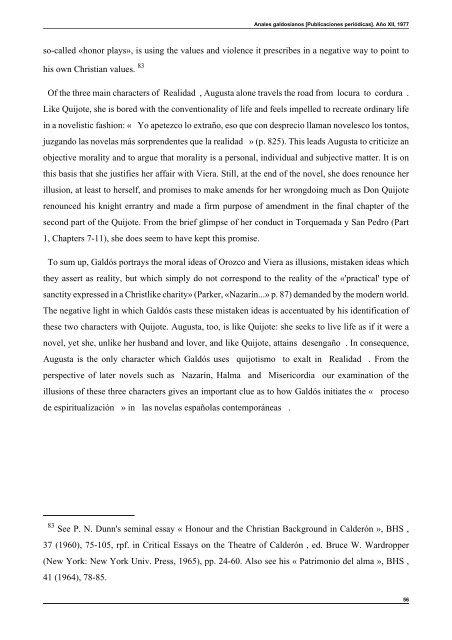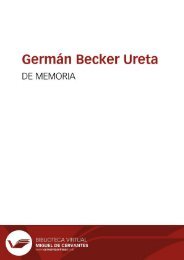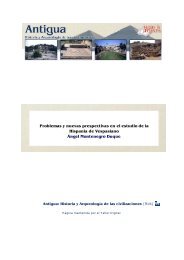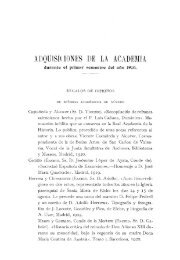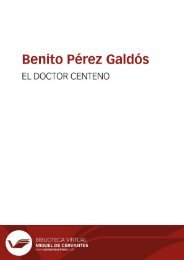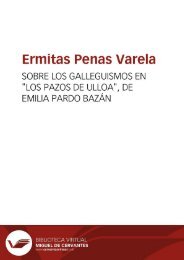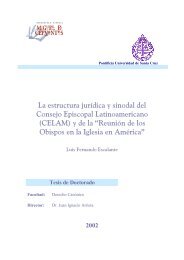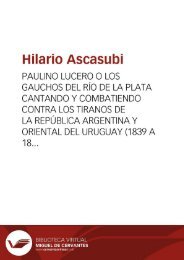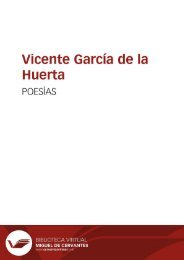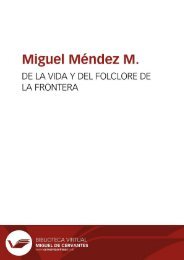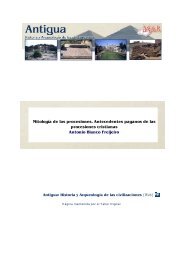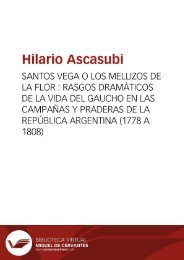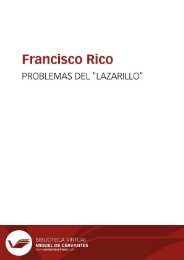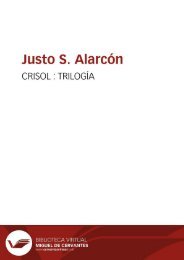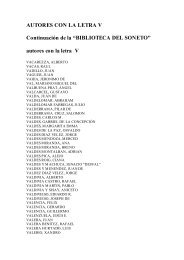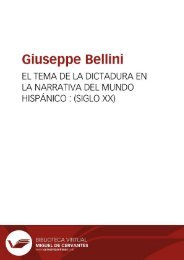You also want an ePaper? Increase the reach of your titles
YUMPU automatically turns print PDFs into web optimized ePapers that Google loves.
Anales galdosianos [Publicaciones periódicas]. Año XII, 1977<br />
so-called «honor plays», is using the values and violence it prescribes in a negative way to point to<br />
his own Christian values. 83<br />
Of the three main characters of Realidad , Augusta alone travels the road from locura to cordura .<br />
Like Quijote, she is bored with the conventionality of life and feels impelled to recreate ordinary life<br />
in a novelistic fashion: « Yo apetezco lo extraño, eso que con desprecio llaman novelesco los tontos,<br />
juzgando las novelas más sorprendentes que la realidad » (p. 825). This leads Augusta to criticize an<br />
objective morality and to argue that morality is a personal, individual and subjective matter. It is on<br />
this basis that she justifies her affair with Viera. Still, at the end of the novel, she does renounce her<br />
illusion, at least to herself, and promises to make amends for her wrongdoing much as Don Quijote<br />
renounced his knight errantry and made a firm purpose of amendment in the final chapter of the<br />
second part of the Quijote. From the brief glimpse of her conduct in Torquemada y San Pedro (Part<br />
1, Chapters 7-11), she does seem to have kept this promise.<br />
To sum up, <strong>Galdós</strong> portrays the moral ideas of Orozco and Viera as illusions, mistaken ideas which<br />
they assert as reality, but which simply do not correspond to the reality of the «'practical' type of<br />
sanctity expressed in a Christlike charity» (Parker, «Nazarín...» p. 87) demanded by the modern world.<br />
The negative light in which <strong>Galdós</strong> casts these mistaken ideas is accentuated by his identification of<br />
these two characters with Quijote. Augusta, too, is like Quijote: she seeks to live life as if it were a<br />
novel, yet she, unlike her husband and lover, and like Quijote, attains desengaño . In consequence,<br />
Augusta is the only character which <strong>Galdós</strong> uses quijotismo to exalt in Realidad . From the<br />
perspective of later novels such as Nazarín, Halma and Misericordia our examination of the<br />
illusions of these three characters gives an important clue as to how <strong>Galdós</strong> initiates the « proceso<br />
de espiritualización » in las novelas españolas contemporáneas .<br />
83 See P. N. Dunn's seminal essay « Honour and the Christian Background in Calderón », BHS ,<br />
37 (1960), 75-105, rpf. in Critical Essays on the Theatre of Calderón , ed. Bruce W. Wardropper<br />
(New York: New York Univ. Press, 1965), pp. 24-60. Also see his « Patrimonio del alma », BHS ,<br />
41 (1964), 78-85.<br />
56


